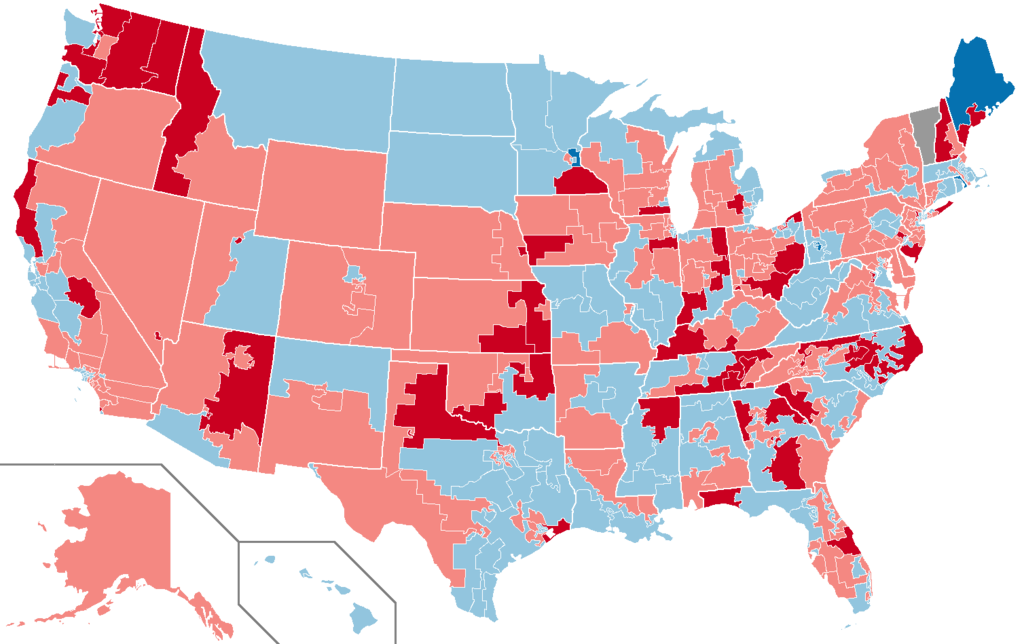
The Contract with America
The Contract with America, written by Newt Gingrich (R-GA) and Dick Armey (R-TX) with support from GOP strategist Frank Luntz, nationalized local congressional races and sharpened the culture war launched under Reagan. It asserted the kind of risk-taking vision that Gingrich had implored those young Republicans in 1978 to pursue, implicitly attacking the Democrats for “evasion and posturing” and instead promised transparency and action. The contract listed a set of specific policies covering taxes, the federal budget, crime, and a range of other issues. In an unprecedented show of unity, it was signed by 367 Republican candidates for the House of Representatives.
The contract brought about a tidal wave of victories in November. Republicans won a majority in the House and control over both houses of Congress for the first time in 40 years. The party also increased by 10 the number of state legislatures under its control and the number of Republican governorships by 11.
Its impact cut even deeper into the course of American politics. With a clear mandate, the House passed most of what the contract pledged and the Clinton administration shifted to the right, signing on to welfare reform and balancing the federal budget. In a 2004 commentary for the Cato Institute, senior fellow Stephen Moore suggested that “the revolution led by Newt Gingrich and Dick Armey helped bring the Reagan Revolution to its beneficial conclusion.
Even though many in the party leadership disliked Gingrich and his confrontational style, he was rewarded with the House speakership in 1995, a position he held for four years. While Reagan had made conservatives relevant again, Gingrich had brought the party real power. After an unexpectedly poor showing by Republicans in the 1998 midterms, Gingrich resigned from Congress when it was clear he would not be re-elected speaker. By then, the party had fully embraced his divisive tactics and relentless pursuit of political power. Gingrich had shown them what they could achieve when they stuck to the same script and, as Princeton University professor Julian Zelizer has said, “prioritize partisanship above all else”.
Feature Image: Image by GoldRingChip, Creative Commons Attribution-Share Alike 3.0 Unported license

